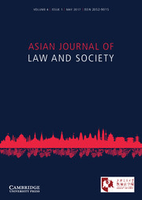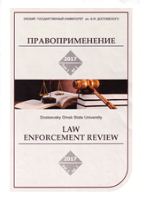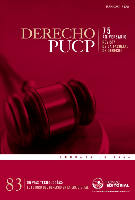
Revista Juridica Portucalense
Scope & Guideline
Exploring Contemporary Legal Challenges and Insights
Introduction
Aims and Scopes
- Legal Frameworks and Reform:
The journal explores the intricacies of existing legal frameworks, including analyses of statutory provisions, case law, and proposed reforms across various jurisdictions. - Socio-Legal Studies:
It emphasizes the interaction between law and society, often examining how legal norms impact social behavior and vice versa, particularly in contexts such as discrimination and human rights. - International and Comparative Law:
The journal publishes comparative studies that highlight legal practices across different nations, focusing on international law's influence on domestic legal systems. - Emerging Legal Technologies:
There is a keen interest in the implications of technological advancements on legal practices, such as artificial intelligence in law, digital evidence, and the regulation of new technologies. - Public Interest and Social Justice:
Papers often address issues of public interest, including access to justice, rights of marginalized groups, and the role of law in promoting social justice. - Taxation and Economic Law:
The journal includes discussions on taxation policies, economic regulation, and their legal implications, particularly in the context of globalization and economic crises.
Trending and Emerging
- Digital Transformation in Law:
There is a growing focus on how digital technologies impact legal processes, including topics like digital evidence, AI in judicial systems, and the regulation of online activities. - Human Rights and Social Justice:
Recent publications emphasize human rights issues, particularly in the context of marginalized communities, highlighting the law's role in promoting equity and justice. - Environmental Law and Sustainability:
Emerging themes around environmental protection and sustainability are increasingly prevalent, reflecting global concerns about climate change and resource management. - International Human Rights Law:
The journal is seeing an uptick in articles addressing international human rights law, particularly in light of global crises and the actions of international organizations. - Alternative Dispute Resolution (ADR):
There is a noticeable increase in discussions around ADR mechanisms, including mediation and arbitration, particularly in the context of digital disputes and consumer protection.
Declining or Waning
- Traditional Labor Law:
Discussions centered on conventional labor law issues, such as standard employment contracts and workplace regulations, have seen a decrease as attention shifts toward gig economy and non-standard work arrangements. - Theoretical Legal Philosophy:
While foundational legal theories remain important, there is a noticeable decline in purely theoretical discussions, with more emphasis placed on practical applications and empirical studies. - Local and National Legal Issues:
The journal appears to be focusing less on localized legal issues, possibly in favor of broader international and comparative analyses, reflecting a move toward a more global perspective. - Health Law in Non-Pandemic Contexts:
Post-COVID-19, the focus on health law, particularly in non-pandemic contexts, has waned, as the journal increasingly addresses health law through the lens of public health emergencies. - Public Law and Constitutional Issues:
While still relevant, there seems to be a reduced frequency of papers solely dedicated to constitutional law, as the journal appears to be integrating these discussions into broader socio-legal analyses.
Similar Journals

Journal of International and Comparative Law
Navigating the Complexities of International LawThe Journal of International and Comparative Law is a premier academic publication dedicated to advancing knowledge and sparking critical discourse in the field of law. Published by SWEET & MAXWELL, this journal aims to bridge the gap between international legal standards and comparative practices, making it an essential resource for legal scholars, practitioners, and students alike. With an impact factor that positions it in the Q3 category of legal journals and a Scopus rank of #534 out of 1025 in the Social Sciences - Law category, it is recognized for its contribution to the legal community since its inception in 2018. The journal, based in Hong Kong, seeks to publish high-quality, peer-reviewed articles that reflect a diverse range of legal perspectives and methodologies. Although the journal is not open access, it remains committed to disseminating vital research and case studies that shape contemporary legal paradigms. Scholars and legal professionals can stay informed on authoritative insights by engaging with this important resource until 2024 and beyond.

Novum Jus
Advancing interdisciplinary dialogue in Law and Society.Novum Jus is a prominent academic journal dedicated to advancing knowledge in the fields of Law, Sociology, and Political Science. Published by UNIV CATOLICA COLOMBIA, FAC DERECHO, this open-access journal has been providing a platform for scholarly communication since 2008, making valuable research freely accessible to readers around the globe. With an impressive impact reflected in its 2023 category quartiles—Q1 in Law and Q2 in Sociology and Political Science—Novum Jus is ranked favorably within Scopus, standing at #479 out of 1025 for Law and #823 out of 1466 for Sociology and Political Science, indicating its significant contribution to the academic community. The journal aims to foster interdisciplinary dialogue and disseminate innovative ideas that shape contemporary legal and social landscapes, catering to researchers, professionals, and students alike. With its commitment to quality and rigorous peer review, Novum Jus remains an essential resource for those engaged in the evolving dynamics of law and society.

Asian Journal of Law and Society
Bridging Legal Frameworks with Societal InsightsAsian Journal of Law and Society, published by Cambridge University Press, serves as a vital platform for scholarly discourse in the fields of law and social sciences. With an impressive 2023 impact factor placing it in the Q2 quartile in both law and sociology/political science categories, this journal is influential in shaping contemporary legal and sociological thought. Covering a broad range of topics, from legal frameworks in Asian contexts to the interplay between law and societal dynamics, the journal invites researchers, practitioners, and students to contribute original articles, critiques, and interdisciplinary analyses. Although it does not currently offer open access options, the Asian Journal of Law and Society continues to be recognized for its significant contributions, as reflected in its Scopus rankings, where it is positioned in the top 30% of law journals and around the 44% ranking in sociology and political science. This trajectory highlights its importance for anyone interested in understanding the complex legal landscapes and social structures across Asia.

Pravoprimenenie-Law Enforcement Review
Fostering scholarship for a just society.Pravoprimenenie-Law Enforcement Review is an esteemed open-access journal dedicated to the critical examination of law enforcement practices and judicial applications. Published by Dostoevsky Omsk State University, this journal has been contributing to the legal field since its inception, with an open-access model initiated in 2017, ensuring widespread availability of knowledge and research. The journal focuses on a diverse range of topics, including legal theory, criminal justice, and law enforcement methodologies, making it a vital resource for researchers, practitioners, and students interested in law and public policy. With its commitment to advancing scholarship and fostering dialogue within the legal community, Pravoprimenenie serves as a pivotal platform for innovative thoughts and impactful research that addresses contemporary challenges in law enforcement.

Rutgers University Law Review
Exploring the nuances of contemporary legal challenges.Rutgers University Law Review is a premier legal journal published by Rutgers University, dedicated to advancing scholarly discourse in the field of law. Established to serve as a platform for legal practitioners, academics, and students, this journal showcases a rich tapestry of articles, notes, and commentaries that critically engage with contemporary and historical legal challenges. The journal, indexed with an ISSN of 2374-3859, provides open access options, ensuring that its valuable insights are readily available to the global legal community. The Scopus ranking places it at a commendable 61st percentile within the domain of Social Sciences and Law, highlighting its significance and impact in the legal scholarship landscape. By fostering an environment of rigorous academic inquiry, the Rutgers University Law Review continues to play an essential role in shaping future legal frameworks and discussions.

Derecho PUCP
Advancing legal knowledge for a just society.Derecho PUCP is a distinguished open access journal published by the Pontificia Universidad Católica del Perú, specifically from the Faculty of Law. With a commitment to advancing legal scholarship, this journal has been an essential resource in the field of law since 2005, providing researchers, practitioners, and students with access to critical analyses and discussions on various legal topics. Based in Lima, Peru, Derecho PUCP holds a prestigious position with a Q2 ranking in the Law category, reflecting its impactful contributions to the social sciences, particularly in the legal domain. The journal publishes cutting-edge research and promotes innovative discourse, aiming to foster academic excellence and engage with contemporary legal challenges. As it continues to converge into its future issues from 2019 to 2024, Derecho PUCP exemplifies a vital platform for those committed to the pursuit of legal knowledge and research.

National Taiwan University Law Review
Illuminating the Evolving Landscape of Asian LawNational Taiwan University Law Review, with ISSN 1812-6324, is a prestigious academic journal published by the NATIONAL TAIWAN UNIVERSITY COLLEGE OF LAW. As a pivotal platform in the field of law, this journal aims to foster scholarly discourse and promote the exchange of ideas regarding legal theories, practices, and developments, particularly within the context of Taiwan and the broader Asian legal landscape. Although it does not currently offer open access, its selectivity ensures a high standard of peer-reviewed research, appealing to researchers, legal practitioners, and students alike. The journal's commitment to exploring contemporary legal challenges and ideologies positions it as an essential resource for those seeking to enhance their understanding of the dynamic legal systems in Asia and beyond. Located in Taipei City, Taiwan, the National Taiwan University Law Review invites contributors and readers who are passionate about advancing legal scholarship and practice.

Washington International Law Journal
Advancing Knowledge in International LawWashington International Law Journal is a distinguished publication dedicated to the field of international law, published by the University of Washington. With an ISSN of 2377-0872, this journal provides a vital platform for scholarly discourse and critical analysis on global legal issues, ranging from human rights to trade law. Although it currently does not offer open access options, the journal aims to facilitate the dissemination of pioneering research and insightful commentary from leading scholars and practitioners in the field. It holds significant value for researchers, professionals, and students seeking to deepen their understanding of international legal frameworks and their implications worldwide. The journal’s commitment to fostering academic excellence positions it as an essential resource for anyone engaged in the dynamic landscape of law on an international scale.

University of Bologna Law Review
Fostering Innovative Legal Thought GloballyUniversity of Bologna Law Review, published by UNIV STUDI BOLOGNA, ALMADL JOURNALS, serves as a pivotal platform for legal scholars and practitioners in the field of law. Established as an Open Access journal in 2016, it has committed itself to disseminating high-quality research and fostering vibrant discussions around contemporary legal issues. Based in Italy, the journal addresses a broad spectrum of topics within the realm of law, enhancing its reach and applicability. Although it currently holds a Q4 ranking in the 2023 law category according to Scopus, this reflects its potential for growth and contribution to academic discourse. The journal’s h-index and precise scope will be developed as it continues to publish groundbreaking research up to 2024. With an aim to cultivate educational resources and foster innovative legal thought, the University of Bologna Law Review is an essential resource for researchers, professionals, and students alike, harnessing the power of open access to engage a global audience.

Revista do Curso de Direito do UNIFOR
Empowering voices in the realm of law.Revista do Curso de Direito do UNIFOR, with ISSN 2236-7632, is a distinguished academic journal published by FUNDACAO EDUCACIONAL COMUNITARIA FORMIGUENSE in Brazil. Specializing in the field of legal studies, this journal aims to disseminate high-quality research that contributes to the understanding and development of legal theory and practice. Although the journal is currently not Open Access, it serves as a valuable platform for scholars and practitioners to share insights and advancements in law, fostering a robust dialogue among legal professionals, academics, and students. By maintaining rigorous academic standards, Revista do Curso de Direito do UNIFOR plays a crucial role in shaping legal discourse and encouraging interdisciplinary collaboration within the broader context of legal education. Researchers and students alike are encouraged to submit their work to advance the academic community's knowledge and engagement in contemporary legal issues.